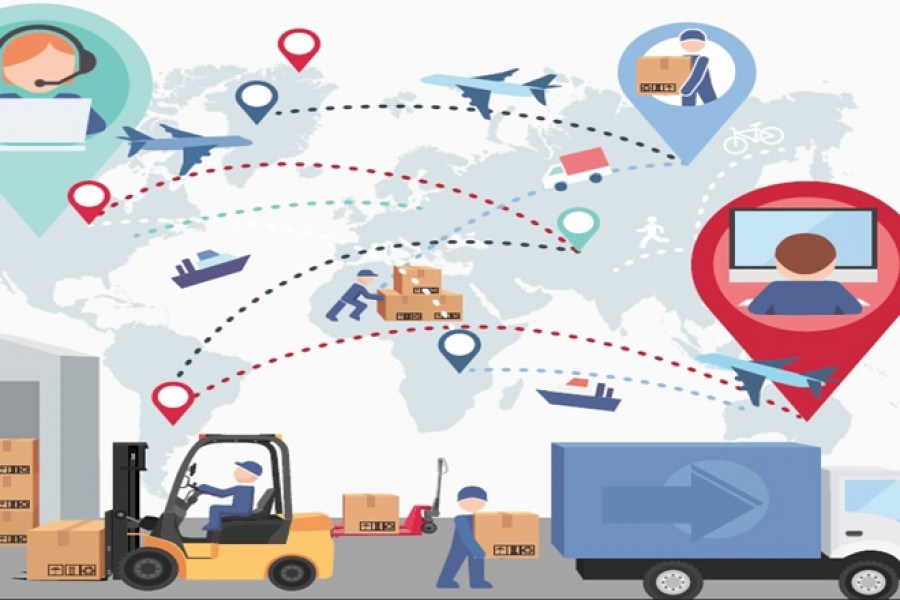According to some reports online sales during the Eid festival hit a whopping Tk 1.20 billion (120 crore) and yet the strong associations supporting them are vehemently opposed to VAT being imposed for fears it would stunt the growth of start-up companies. Similar is the case with the previous year's sales of some Tk 700 million (70 crore) in books during the Ekushe Book Fair. Unfortunately there's no one to speak up for Small and Medium Enterprises (SMEs). This despite the massive employment numbers involved in SMEs. They are being targeted as part of the expansion of the tax net even though they cater for the lower income groups unlike online ventures that are more inclined to the haves.
It's an old argument whereby newer businesses seek tax holidays in the formative years of operation and thereafter seeking extensions. With online payment option made much easier these days chief of the IMF (International Monetary Fund) has warned that such payments disrupt traditional business in the form of data and artificial intelligence (AI). The massive success of Amazon is one that is embroiling a huge tax row whereby technology giants are being fined consistently for not paying taxes that should be rightly so. Christine Lagarde's direction is not misplaced in that banks and financial institutions are in the line of fire as are jobs.
Expansion of the tax net is akin to the sweetmeat trade where some of the established firms are charging VAT on consumers whereas the bulk of the others are getting off scot-free. Something similar could be phased in beyond the Aarongs and other establishments where shops do not charge VAT on produce generated by the SMEs. On the other hand, the same small industries' products are being charged through solid set-up firms thereby contributing to an unfair discrimination of taxes. The options are limited if true tax net expansion is to be achieved and as usual, the National Board of Revenue (NBR) is targeting households as their prime targets. Armed with a list of buildings rightly or wrongly approved by Rajuk, the NBR sleuths will be going door to door to check on income tax payments. The Finance Minister believes ten million tax payers are available to pay that what is due even though the bulk of registered tax payers don't submit returns. The discrimination lies in between income tax practitioners and a section of the NBR for such a come about of matters.
Even with generous government pay increases and Members of Parliament allowances, there has been a stoic refusal to reveal how much taxes are paid by the privileged few even though the Prime Minister and former Finance Minister declared their income. Nor is it difficult to pursue the election aspirants that all had to submit their assets and liabilities at the time of filing nominations. These are low hanging fruit that the NBR dare not touch. Contrarily, microscopes are being used to those who are paying whatever they do in taxes.
Start-up companies contribute to the growing of the economy but SMEs outweigh them manifold. And yet a lack of a representative body strong enough to support their cause is absent. Bidi manufacturing area MPs have written to the NBR pleading against new taxation on grounds of employment. One wonders whatever happened to the alternate crops that were being devised to wean people from the habit.
Ms. Lagarde's point is well taken. If start-ups can't show their reinvestment in the country in place of repatriation of profits abroad we are barking up the wrong tree. Money circulation cannot be the domain of some and not others. Bidi costs are reinvested; one cannot say the same of cigarettes multinationals. And it becomes more massive when the telecom giants are taken into consideration.


